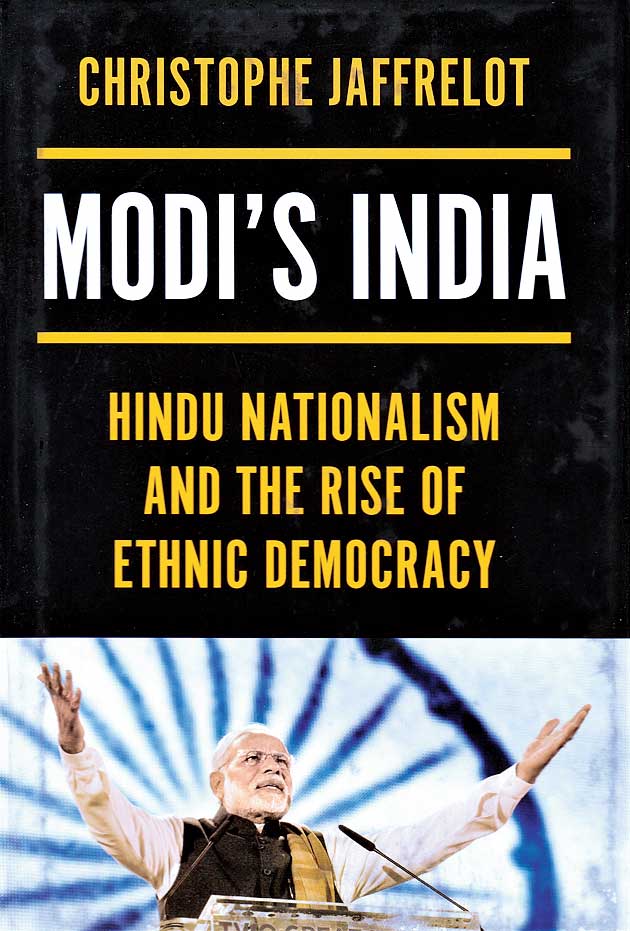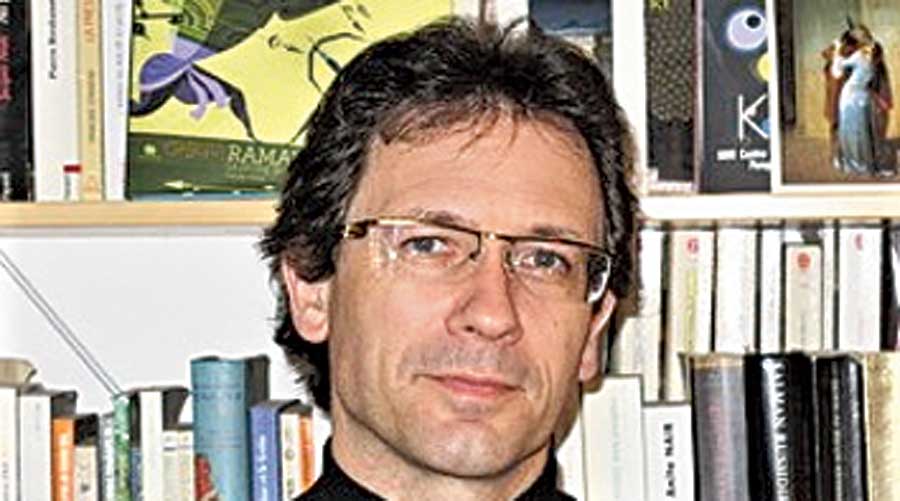A French scholar who has studied Narendra Modi’s politics and policies over the past 20 years has just published a 639-page book on the Prime Minister in which he predicts that India’s transformation into an ethnic democracy, “where minorities are second class citizens”, and authoritarianism risks reaching a “point of no return”.
Modi’s India: Hindu Nationalism and the Rise of Ethnic Democracy by Christophe Jaffrelot, professor of politics and sociology at King’s College London, has been translated from French by Cynthia Schoch and published by Princeton University Press.
The author explained how he sees the model of democracy in India in an interview: “Democracy, nowadays, is a notion you need to qualify when applied to India. You may say, like some scholars do, that it is an ‘illiberal democracy’.
“I prefer to use the concept of ‘ethnic democracy’ that has been first used in the case of Israel. An ‘ethnic democracy’ is a regime where pillars of democracy are still practised, including elections — something populists across the globe need to retain to acquire legitimacy — but where minorities are second class citizens because of all kinds of discrimination.
“You may (also) use the word ‘majoritarianism’, which designates the attempt for transforming a cultural majority into a permanent, political majority”.
Jaffrelot predicted that “changes under Modi may be permanent if the Hindutva forces have not only captured power, but also society — at least temporarily — and if this hegemonic position allows them to get deeply entrenched in the State apparatus, then a point of no return will be reached”.
“This book has tried to make sense of the political trajectory of India from populism to ethnic democracy and authoritarianism under Narendra Modi, a journey of less than ten years,” writes Jaffrelot.
The drift of the book is apparent in the headings given to chapters and sections: Hindu Nationalism: A Different Idea of India; Hindutva: What It Means to Be a Hindu; Modi in Gujarat: The Making of a National-Populist Hero; Targeting Minorities; Anti-Christian Xenophobia; Recurrent Mobilisations against Muslims; The Slow Death of the Right to Information; and What Fourth Estate?
Among Indian scholars, his book has been called “the most comprehensive account to date of Narendra Modi’s capture and consolidation of power” by Partha Chatterjee of Columbia University, while Patrick Heller said “Modi’s India is quite simply the most detailed, theoretically sophisticated and comprehensive analysis of the rise of Modi’s BJP as a dominant electoral force”.
Jaffrelot wears a number of other hats.
He is based in Paris where he was elected president of the French Political Science Association last year and is a permanent consultant with the policy planning staff of the French foreign ministry. He is director of research at CERI-Sciences Po/CNRS and a non-resident scholar at the Carnegie Endowment of International Peace. His books include The Pakistan Paradox, Hindu Nationalism: A Reader and a biography of B.R. Ambedkar.
In the conclusion of Modi’s India, the author cites political scientist Suhas Palshikar: “In 2019, Suhas Palshikar concluded his contribution to Majoritarian State by considering that ‘electoral defeat alone can puncture the BJP’s resolute march towards crafting a new hegemony’, but electoral defeat may not make much of a difference, or, to be more precise, while it is a necessary condition, it may not be a sufficient one.
“First, the Sangh Parivar is so deeply entrenched in the social fabric that it may continue to dictate its terms to the State on the ground — and to rule in the street. Second, the ‘deep state’ may remain in a position to influence policies and politics even if the BJP is voted out. In that sense, Hindu nationalism does not rely as much on one man to push its agenda as the BJP does to win elections.”
Jaffrelot said he had “interviewed hundreds of people in the 20-years-long research that I have devoted to Narendra Modi’s politics in Gujarat and at the Centre”. In 2014 he decided to study whether Modi would use the five pillars of his “Gujarat model” as Prime Minister of India.
“I continued to visit Ahmedabad once a year and other cities as well, including Delhi and Mumbai, but
also Lucknow where the Hindu nationalist forces were adapting the Gujarat model to the local conditions of UP,” he said.
Referring to “elitism and authoritarianism”, he said: “I show that the rise to power of the BJP has translated into a comeback of upper caste politicians, a dilution of reservations, and pro-rich policies in terms of taxation among other things…. I distinguish two modalities of authoritarianism, which are not mutually exclusive.
“The first one pertains to vigilantism and consists in enforcing social and religious norms by resorting to physical threats and intimidation. Several components of the Sangh Parivar, including the Bajrang Dal, are in charge of such activities.
“The second one relies on State institutions — such as the police — which are implementing governmental will — at the state level or at the federal level. In my book, I try to demonstrate that both are two sides of the same coin — partly because of the emergence of a kind of deep state.”

The cover of Modi’s India: Hindu Nationalism and the Rise of Ethnic Democracy
Jaffrelot said he was introduced to Indian philosophies at 18, has long taken an interest in Hinduism, Buddhism and Sufism, did his PhD on Hindu nationalism, and has been to India at least twice a year since his first visit in 1984.
Among politicians, he has interviewed Atal Bihari Vajpayee, L.K. Advani, Kanshi Ram, Mulayam Singh Yadav, Nanaji Deshmukh and Madhu Limaye.
His view of the Fourth Estate is that “the mainstream media is losing its independence for all kinds of reasons, including the ads policy of the government, intimidation due to income tax and Enforcement Directorate raids, concentration of media outlets in the hands of businessmen who need the government’s support or are close to the rulers — not to say anything about the lack of courage of many newsmen who are easily co-opted by the regime”.
He said that “the Election Commission has lost some of its independence”. As for the Supreme Court, “under four different chief justices it abstained from opposing the government for all kinds of reason, ranging from the fact that some of its members had been blackmailed, shared ideological affinities with the regime or anticipated post-retirements sinecures”.
Jaffrelot hopes to visit India to debate and discuss the ideas in his book.
“If academic works relying on years of empirical research could not be discussed any more in India, the very notion of democracy would be in question.”
He has no idea how the Modi government will react to the book.
“No government likes its work to be examined because all governments paint rosy pictures of their achievements. The question is how far will they engage with scholars who analyse their policies and strategies. It’s a test of freedom of expression.”











